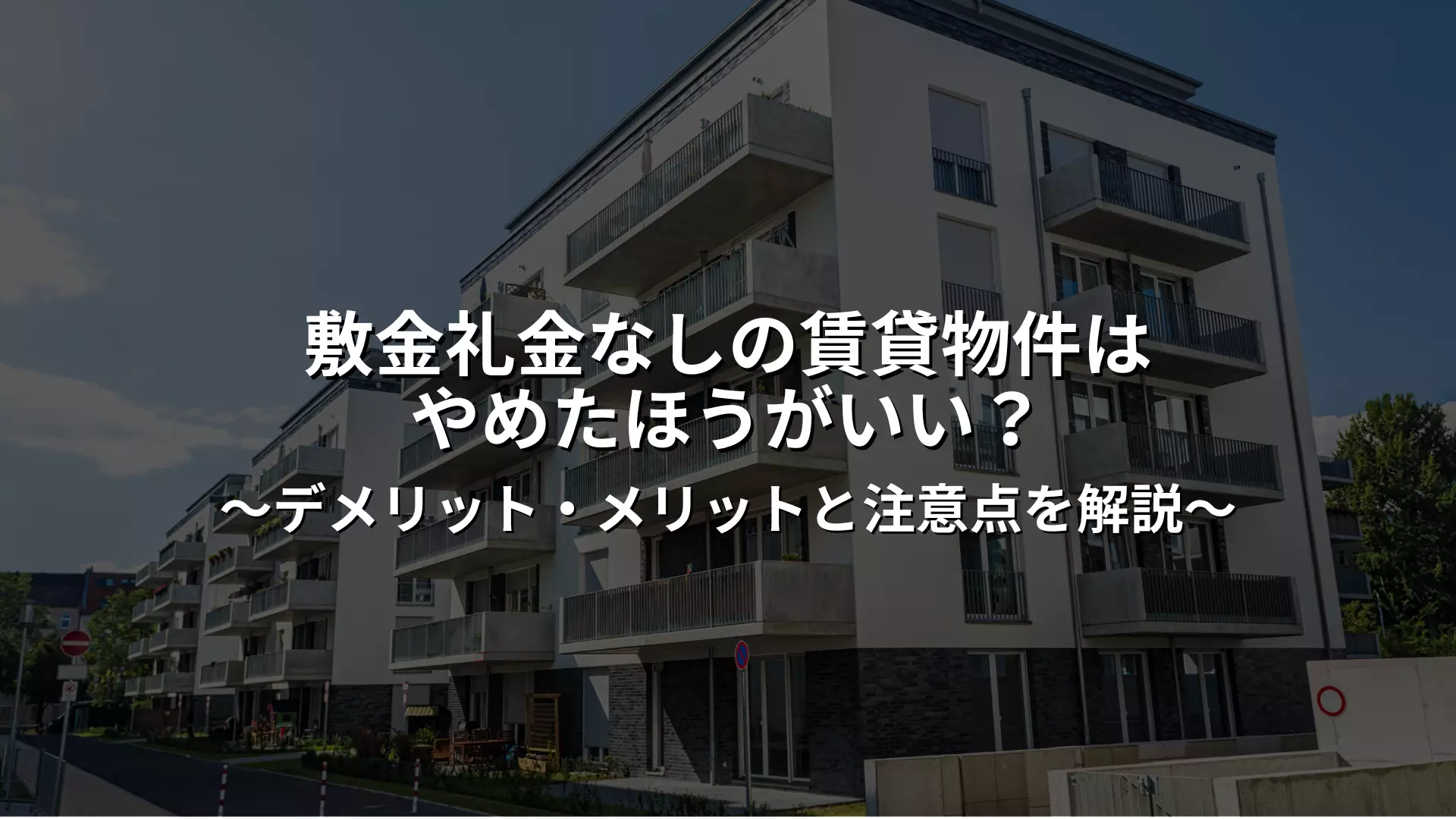Percentage of university students living alone and their backgrounds
For university students, living alone offers independence and freedom, but the reality is that it also places a heavy financial and lifestyle burden. By learning how many students actually choose to live alone, whether they receive money from their parents, and the differences in living environments between urban and rural areas, we can get a glimpse into the realities of living alone.
Below, we will explain the percentage of university students living alone and the reasons behind this.
How many college students live alone?
Nationwide, the rate of university students living alone is estimated to be around 40%, and this rate tends to be particularly high among students from rural areas attending universities in urban areas.
If the school you are going to is too far from home to commute to, many students will rent an apartment or student condominium to start their new life. Living alone can be tough because you have to balance your studies and daily life, but it also provides a great opportunity to learn how to use your time and manage your finances.
Finding an apartment and planning your living expenses before enrolling at university is essential to starting your student life with peace of mind.
Percentage of those who receive money from home and those who do not
For university students living alone, whether or not they receive money from their parents directly affects how easy it is to live.
Statistics show that approximately 70% of students living alone receive money from their parents, with the average amount being 50,000 to 70,000 yen per month. On the other hand, there are a certain number of students who receive almost no support from their parents and live solely on part-time work or scholarships. Students who do not receive money from their parents rely on part-time work for the majority of their living expenses, and many struggle to balance their studies with their studies.
Whether or not you receive financial support from your family will affect not only your finances but also your lifestyle and academic performance, so it is important to have a thorough discussion with your family before enrolling in school to confirm the level of support they can provide.
Differences between urban and rural areas
The circumstances for university students living alone are very different between urban and rural areas.
urban area
- Average rent is high, with even a one-room apartment typically costing around 60,000 to 80,000 yen in Tokyo's 23 wards and Osaka city, making it difficult to live without money from home or a part-time job.
- On the other hand, it is also characterized by its high convenience, with a wide range of public transportation and part-time job opportunities.
Regional cities and suburbs
- Rent is cheap, and there are many properties where you can live for around 30,000 to 50,000 yen.
- Limited public transport means that a car or bicycle may be necessary, and mobility may be limited compared to urban areas.
Understanding the differences between regions and making appropriate choices is an important point in order to continue living alone without any difficulties.
Why living alone is hard for university students
While living alone as a university student offers independence and freedom, there are also many factors that can be perceived as "challenging." These include the financial burden of rent and living expenses, the difficulty of balancing studies with part-time work, unfamiliar housework and cooking, and disruptions to daily routines. Furthermore, it is not uncommon for students to suffer from poor health, mental anxiety, and loneliness.
Here we will explain the specific ``difficult reasons'' that university students are likely to face.
Financial burden (rent, living expenses, initial costs)
The biggest concern for university students living alone is the financial burden of rent and living expenses. Particularly in urban areas, even a studio apartment can cost around 50,000 to 80,000 yen per month, and when you add in utilities, communication fees, food, and other costs, the total living expenses can reach 100,000 to 120,000 yen per month.
Furthermore, when moving in, it is common to need initial costs of around 200,000 to 500,000 yen, including a security deposit, key money, agent fees, and the purchase of furniture and appliances. Students who receive money from their parents can afford it, but those without will have no choice but to rely on part-time work income and will have to cut back on their living expenses.
This financial pressure is one of the biggest reasons why people feel that living alone is "difficult."
The difficulty of balancing studies and part-time work
Many students take on part-time jobs to cover living expenses, but balancing this with their studies is a major challenge.
Working many shifts can stabilize your household finances, but it can also interfere with your time for classes and exam preparation. Conversely, prioritizing your studies can lead to a dilemma where you don't have enough income and your life becomes difficult. The physical and mental burden increases, especially during exam periods and when seminar activities overlap, and many students find it difficult to enjoy university life itself.
Part-time work is an important way to support living expenses, but if you push yourself too hard, you risk damaging your academic performance and health, so finding the right balance is a major challenge when living alone.
The difficulty of housework and cooking
When you start living alone, you have to do all the household chores yourself, such as cleaning, laundry, and cooking.
Many students are initially enthusiastic about saving money by cooking at home, but when they get home late from classes or part-time work, they tend to rely on eating out or convenience stores. As a result, expenses increase and nutritional balance is often unbalanced.
Laundry and cleaning tend to be put off, and before you know it, your room is messy, lowering your quality of life. This burden of housework takes up more time and energy than you might imagine, and is a major factor in why people feel that living alone is "tough." It's important to learn efficient housework methods and simple home cooking recipes.
Lifestyle habits are easily disrupted
When university students live alone, their daily rhythms become easily disrupted because they are no longer under the supervision of their parents. It's easy to fall into irregular habits, such as staying up late, reversing your day-night routine, or eating an unbalanced diet based on convenience store and instant foods. Particularly if your part-time shift falls late at night, your sleep time is cut short, making it difficult to concentrate on your studies.
Poor lifestyle habits not only lead to poor academic performance and poor health, but also to increased mental stress. Without a sense of self-management, your health will deteriorate and you will begin to feel that living alone is "difficult," so it is important to be conscious of living a regular life.
Poor physical health and mental health
Many students feel anxious when living alone because there is no one to look after them if they become ill.
Especially when you are unable to move due to a fever or gastroenteritis, you have to do everything by yourself, such as eating, shopping, and going to the hospital, and you feel very lonely.
In addition, stress caused by unfamiliar environments and financial pressures often leads to mental health problems. A lack of communication with friends and family can also exacerbate feelings of loneliness, sometimes leading to symptoms similar to depression.
Before you start living alone, finding out where to go for support, such as hospitals and student counseling centers, is an important step to ensure you can live your university life with peace of mind.
Feeling lonely and homesick
Surprisingly, many college students living alone suffer from loneliness and homesickness.
Students who move from rural areas to urban areas can feel particularly lonely living away from friends and family. Until they make more acquaintances through classes or part-time jobs, they often spend their holidays alone, which can exacerbate feelings of loneliness.
Furthermore, living in an unfamiliar environment can be mentally stressful, with many students wanting to return home. Increasing opportunities to connect with others through hobbies and club activities is an effective way to alleviate feelings of loneliness. Regular contact with family also provides a sense of security and helps to alleviate homesickness.
Search for a room
Only furnished properties with appliances are listed!
The actual costs faced by university students living alone
The cost of living alone as a university student varies greatly depending on the area and lifestyle. Rent is a particularly large burden, with large differences in market prices between urban and rural areas. Additionally, there are essential monthly expenses for utilities, communication fees, food, and daily necessities. The reality is that the degree of financial comfort you can enjoy will depend on how you balance your part-time income with the money you receive from home.
Here we will introduce the actual costs.
Average rent (by city/region)
Rent is the biggest expense for a university student living alone.
In urban areas, the average price for a studio or 1K apartment is 60,000 to 80,000 yen per month, and it is even more expensive in Tokyo's 23 wards and central Osaka. On the other hand, in regional cities and suburbs, there are many properties available for 30,000 to 50,000 yen, with the difference from urban areas reaching tens of thousands of yen.
When student apartments and condominiums are concentrated near universities, the market price often affects the cost of living for the entire area. Since rent often accounts for about half of total living expenses, choosing a property based on how much you can afford with your income is an important point for continuing to live alone comfortably.
Utility and communication costs
In addition to rent, essential expenses include utilities and communication costs.
The combined cost of electricity, gas, and water is roughly 15,000 to 20,000 yen per month, with expenses tending to increase especially during periods when heating is used frequently in winter and air conditioning in summer.
Communication costs for a smartphone and internet connection combined will be around 8,000 to 10,000 yen per month.
While there isn't much difference between urban and rural areas, it is possible to reduce costs by changing your contract plan and how you use your services. An increasing number of students are using low-cost smartphones and student discount plans to save on communication costs and create more leeway in their household budgets. Utility bills and communication costs are fixed expenses that are incurred every month, so devising ways to save money is key to maintaining a stable lifestyle.
Food and daily necessities expenses
Food costs make up a large portion of a university student's living expenses, typically costing between 20,000 and 40,000 yen per month. While it's possible to keep costs relatively low by cooking at home, students who are busy with classes and part-time jobs tend to rely on eating out or convenience stores, which can add up to expenses.
Furthermore, daily necessities such as detergent and toilet paper cost around 3,000 to 5,000 yen per month, which is an expense that cannot be ignored. Students who receive little money from their parents tend to cut back on food expenses, but they should be careful because an unbalanced diet can lead to poor health.
Recently, an increasing number of students are saving money wisely by using the school cafeteria, buying in bulk, and freezing food. Managing food and daily necessities costs effectively is an important point for continuing to live comfortably on your own.
Balancing part-time income and remittances
For university students living alone, the balance between part-time income and money sent home is directly linked to the stability of their lives.
Students who receive money from their parents receive an average of 50,000 to 70,000 yen per month, and it is common for them to earn an additional 50,000 to 80,000 yen per month from part-time work.
On the other hand, students who receive little or no financial support from their parents are forced to rely on part-time work, which places a heavy burden on them as they try to balance their studies with part-time work. How you allocate your income will determine whether you can live comfortably or are forced to constantly save.
The ideal situation is to balance the amount of money sent home with part-time work, so that you can cover the majority of your living expenses. For students who do not receive money from their parents, it is especially important to consider taking advantage of scholarships and tuition exemption programs.
Benefits of living alone
Living alone as a university student is often thought of as "tough" due to financial and household chores, but it actually has many great benefits. Free time, establishing a lifestyle, convenient commute, and acquiring housework and money management skills are all valuable experiences you can gain before entering the workforce.
Here we will explain in detail the benefits you can get from living alone.

Free time and lifestyle
The biggest appeal of living alone is the freedom to design your own time and lifestyle.
Living at home requires you to adjust to the daily rhythms of your family, but living alone allows you to decide your own wake-up and bedtimes, meal times, and the freedom to invite friends over or immerse yourself in your hobbies, allowing you to enjoy your university life in a more independent way.
Furthermore, being in an environment where you are not disturbed by others not only improves your ability to manage yourself, but also relieves you of stress. Experiencing a life with a high degree of freedom makes it easier to find a lifestyle that suits you, and is also useful for building a foundation for life after entering the workforce.
Reduced commute time allows students to focus on their studies
A major advantage of living alone is that you can live close to the university, significantly reducing your commute time.
Many students live 1-2 hours away from their parents, but by living near the university, they can reduce their commute to 10-30 minutes. This extra time can be spent studying, participating in club activities, or working part-time, making university life more fulfilling. The reduced commute burden is a major advantage, especially before exams or during busy periods of seminar research.
In addition, living alone offers the flexibility to handle sudden assignment submissions and class changes, allowing you to create an environment that makes it easier to concentrate on your studies, which is another major benefit of living alone.
Acquire housekeeping skills and life skills
Living alone requires you to do household chores such as cooking, cleaning, and laundry on your own, so you naturally acquire life skills. Even if it feels like a hassle at first, by repeating it every day you will learn efficient methods, and these will become practical skills that will be useful even after you enter the workforce. Another major benefit of cooking for yourself is that it helps you develop the habit of considering nutritional balance and helps you to be conscious of a healthy diet.
Furthermore, the experience of managing your own life is the first step towards becoming an "independent adult" and can be used to promote yourself when job hunting. This improvement in living skills is one of the long-term benefits of living alone.
Improve your money management skills
When you live alone, you have to manage your living expenses, such as rent, utilities, and food, yourself. The experience of managing with a limited income naturally cultivates a sense of money. By learning to distinguish between fixed and variable expenses and find ways to save money, which are difficult to think about when living with your parents, you will be able to use your money in a planned manner.
Students who do not receive financial support from their parents will need to manage their part-time income efficiently, and they will quickly develop the habit of cutting down on unnecessary expenses. These skills will be useful for managing household finances, saving, and investing even after they enter the workforce, so improving your financial management skills is a major benefit of living alone during university.
Develops self-reliance
Living alone is an experience that fosters a sense of independence, as you have to make all your decisions on your own. The process of solving problems in an environment where you cannot rely on your parents is also an opportunity to hone your sense of responsibility and judgment.
By making small daily decisions such as managing your living expenses, adjusting your schedule, and taking care of your health, you will develop the ability to live independently. Another feature of living alone is that it can make you mentally stronger as you experience loneliness and face difficulties.
This sense of independence will be a valuable asset in job hunting and in working life, and will definitely be useful in building your career and relationships in the future.
Search for a room
Only furnished properties with appliances are listed!
Solutions when you feel like living alone is tough
Living alone as a university student can often be difficult due to financial burdens and the difficulties of daily life. However, with some ingenuity, the burden can be alleviated. There are many solutions, such as utilizing scholarships and support systems, reviewing rent and living expenses, finding ways to do housework efficiently, and even building relationships to alleviate loneliness.
Here we will introduce the specific methods.
Take advantage of scholarships and programs
Many students find it difficult to live alone for financial reasons. In that case, make sure to take advantage of scholarships offered by the Japan Student Services Organization (JASSO), your university's own grant-type scholarships, and tuition exemption programs.
If you try to cover your living expenses with just a part-time job, it will be difficult to balance it with your studies, so it is important to combine various systems to create a stable foundation for your life. Some scholarships require repayment, while others do not, but if you use them in a planned manner, they can be a great support.
Furthermore, some local governments offer rent subsidies and living support programs, so gathering information can help reduce financial anxiety.
Keep your rent to a quarter of your income
Rent accounts for the largest portion of living expenses. If rent is too high, it will put pressure on other expenses, forcing you to constantly strive to save money. Generally, it is considered ideal to keep rent to less than a quarter of your income, which leads to a more manageable household budget.
For example, if your combined income from part-time work and remittances is 120,000 yen per month, your rent should be around 30,000 yen. While this may be difficult in urban areas, you can reduce costs by choosing a property a little further out of the city, or by compromising on the facilities and age of the building. In order to live a stable life in the long term, it is important to realistically reassess your rent settings.
Money-saving tips (using the school cafeteria, cooking at home, cheap smartphones)
Small changes in your daily life are essential to keeping your monthly expenses down.
University cafeterias are inexpensive and nutritionally balanced, making them less expensive than eating out. Furthermore, by cooking at home, you can significantly reduce the cost per meal.
There is also room to reassess your communication costs, and taking advantage of low-cost smartphones and student discount plans can save you thousands of yen per month. By combining multiple such savings methods, it is not uncommon to see a difference of tens of thousands of yen or more per year.
By making efforts to reduce expenses, you can significantly reduce the financial burden of living alone.
Housework is not about perfection
When you live alone, you have to do all the cooking, cleaning, and laundry by yourself, but if you expect perfection, the burden increases and you are more likely to feel it is ``tough.''
for example,
- I only cook when I have time
- When you're busy, combine frozen meals and prepared meals.
- There is no need to clean every corner every day, but you can get into the habit of tidying up frequently.
It's important to be flexible in this way. By letting go of perfectionism and being conscious of doing housework efficiently, you can create time and peace of mind. The key to living alone for a long time is not to push yourself too hard.
Tips for stabilizing your daily rhythm
If your lifestyle habits are disrupted, it can lead to physical and mental health issues, and can interfere with your studies, placing a significant burden on living alone. To prevent this, it is effective to maintain consistent bedtimes and wake-up times, and to eat meals at set times as much as possible.
Staying up late or reversing your day-night routine can lead to poor health, so you need to be especially careful. It's also effective to find ways to prevent excessive smartphone use and establish a morning routine. Maintaining a healthy lifestyle will improve your concentration and allow you to balance your studies and part-time work more smoothly.
Taking good care of yourself is an important part of living comfortably on your own.
Know who you can rely on in an emergency
Having someone you can rely on when you get sick or have trouble can make a big difference in your sense of security. It's important to know in advance not only your parents and family, but also friends who live nearby, your university's student counseling center, and local medical institutions.
Dealing alone can be particularly stressful in the event of a sudden fever or accident, so having contact details in place can be reassuring. It's also effective to build trustworthy relationships with colleagues and seniors at your part-time job. Knowing the people and places you can rely on in an emergency can help reduce feelings of loneliness and anxiety, allowing you to continue living alone more safely.
Hobbies and friendships can help alleviate loneliness
Many students who live alone feel lonely and homesick. Connecting with others through hobbies and friendships is an effective way to alleviate this. Joining university clubs, club activities, and local events will make it easier to meet new people.
In addition, interacting with people who share the same interests through hobbies can increase the enjoyment of life and reduce feelings of loneliness. Regular contact with family and friends can also provide emotional support. By consciously connecting with people, you can maintain mental stability and enjoy living alone in a positive way.
Experiences of a university student living alone
The voices of university students who have actually experienced living alone are filled with real worries and lessons learned. Their experiences are diverse, ranging from not having enough money and having to work part-time jobs, to feeling a sense of growth despite being overwhelmed with unfamiliar housework, to feeling lonely but learning to value their own time.
Here we introduce some representative episodes.
"I don't have enough money so I'm drowning in part-time work..."
Many university students who start living alone are faced with the need for part-time work to cover living expenses. Students who do not receive enough money from home often have to work four or five days a week or more to pay for rent and food, making it difficult to balance their studies with their work. Continuing a lifestyle of "going to work straight after class and coming home late at night" can leave you physically and mentally exhausted.
However, at the same time, it is also an opportunity to learn how to manage limited time and develop a sense of responsibility. In fact, many people say, "Working part-time jobs was tough, but it helped me improve my time management skills," and it is a valuable experience that allows them to experience both the challenges and growth of living alone.
"Housework is hard, but I feel like I've grown as a person."
Taking on all household chores such as cooking, laundry, and cleaning is an unavoidable challenge for college students living alone.
At first, you won't get used to it, and you'll likely make mistakes like burning the stove or forgetting to hang out your laundry and making it smell bad. However, by doing it every day, you'll become more efficient and be able to plan your actions accordingly.
Many students say, "At first, cooking was a pain, but now I have more dishes I'm good at and it's fun." Housework improves students' ability to live independently and also makes them appreciate their parents. These experiences become useful skills even after they enter society, and living alone is a major growth factor.
"I'm lonely, but I have more time for myself."
Living alone can make you feel lonely without your family or friends nearby. Some students feel especially lonely and homesick right after starting school or when they have no plans for the weekend.
However, one of the attractions of living alone is the freedom to spend your "personal time." Being able to immerse yourself in reading, watching movies, or your hobbies, or simply relax without being disturbed by others, can lead to a sense of mental fulfillment. Overcoming loneliness can deepen your self-understanding and help you take the next step toward becoming an independent adult.
"I felt lonely at first, but I started to enjoy my own time," is a real experience shared by people who have lived alone.
Search for a room
Only furnished properties with appliances are listed!
Things you should know before starting to live alone as a university student
When you start living alone as a student, it's very important to prepare in advance. When searching for an apartment, you need to carefully consider the rent, location, and layout. You also need to understand the estimated initial costs and prepare your funds in a planned manner. Understanding the moving process and preparing for crime prevention and everyday life issues will help you start your new life with peace of mind.
Here are some things you should know before you start living alone as a university student.
Points to consider when searching for an apartment (rent, location, layout)
The first thing a university student faces when living alone is finding an apartment. Rent should be balanced with income and money sent home, and ideally, it should be kept below a quarter of your monthly income.
When choosing a location, you should consider the commute time to your university, and also check whether there are supermarkets, hospitals, and train stations nearby. Studio or 1K apartments are common, but the comfort of living there will vary greatly depending on whether or not you have a study space and storage space. It's also important to choose a property with good security facilities.
If you decide based solely on price, you may find yourself experiencing inconveniences later on, so choose a home that suits your lifestyle while carefully considering the balance between cost and convenience.
Estimated initial costs and preparations
One of the biggest burdens of living alone is the initial costs when moving in. Generally, you will need to pay four to six months' rent, along with a security deposit, key money, and agent fees, as well as advance rent and fire insurance premiums.
If you add in the cost of furniture, appliances, and daily necessities, you should expect a total of around 200,000 to 500,000 yen. If financial support from parents and savings are not enough, many students take advantage of scholarships or installment payments.
As a way to reduce costs,
- Choose a property with no key money and furnished appliances
- Choosing a share house property
- Shifting the moving period to a non-peak period
These kinds of ideas are also effective. By making a financial plan in advance, you can start your new life with peace of mind.
The process leading up to moving
If you are starting to live alone when you enter university or move up to the next grade, it is important to understand the moving process.
The process is as follows:
- First, search for a property at a real estate agency
- Viewing and signing a contract
- Arrange for moving companies and purchase furniture and appliances
- Start packing in time for your move-in date
- Turning on lifelines such as water, gas, electricity, and internet
It's important to prepare early, as it's difficult to get reservations during the busy months of February and March and costs tend to rise. By planning backwards, you can reduce the burden of moving and start your new life smoothly.
Crime prevention and preparation for everyday life troubles
When living alone, it is essential to take security measures and prepare for everyday troubles. Ideally, you should choose a property with an auto-lock and security cameras, but if not, you can also use auxiliary locks and sensor lights. Especially for women living alone, being aware of security will lead to peace of mind.
It is also important to follow local etiquette, such as rules for garbage disposal and noise levels. Furthermore, it is a good idea to check emergency hospitals and evacuation shelters in advance in case of sudden illness or a disaster. It is essential to be prepared in terms of both crime prevention and living rules in order to live safely and comfortably.
summary
It's true that living alone as a university student can be tough at times due to financial burdens, housework, and feelings of loneliness. However, these difficulties also offer hidden opportunities to develop independence and the ability to live independently. By learning solutions and making preparations in advance, you can live positively, and living alone can be an important experience that will make your university life more fulfilling.
It's natural to feel "tight"
When university students start living alone, they naturally feel that it's "more difficult than they thought," facing the pressures of rent and living expenses, the challenges of balancing their studies with a part-time job, and the difficulty of housework. Particularly for students who are moving away from their parents for the first time, the responsibilities and burdens that come with freedom can be a major obstacle.
However, feeling that it's "difficult" is not a failure, but a step towards growth towards independence. Many students have the same worries at first, so there's no need to blame yourself for feeling anxious. Rather, the greatest value of living alone is that it allows you to develop the ability to overcome difficulties through this experience.
Knowing the solutions and preparing can help you live positively
Even when you feel like living alone is tough, knowing and practicing solutions can make a big difference in how easy it is to live alone.
for example
- Use of scholarships and systems
- Keeping rent within a range that is appropriate for your income
- Saving money by eating at school cafeterias or cooking at home
- Use of low-cost smartphones, etc.
There are many ways to do this, and instead of trying to do household chores perfectly, it's also effective to rely on efficiency and convenient gadgets.
Furthermore, when you feel lonely, consciously spending time connecting with friends and family can help you feel better. With some preparation and ingenuity, living alone can turn from being "just difficult" to being "an opportunity for growth."
Enjoy living alone as a valuable experience during your university life
Living alone as a university student can certainly have its challenges, but it also offers many experiences that outweigh the difficulties. Managing your own living expenses will sharpen your financial sense, housework will help you develop self-reliance skills, and how you spend your free time will allow you to discover your own lifestyle.
These experiences will be a great asset when you enter the workforce, and will form the foundation for your sense of responsibility and independence. The appeal of living alone is that even in the midst of difficulties, there is joy and a sense of growth. Living alone is something you can only challenge yourself with during your few years at university, so if you can take a positive approach and enjoy it as a precious time, it will be an important step that will lead to your future.





























